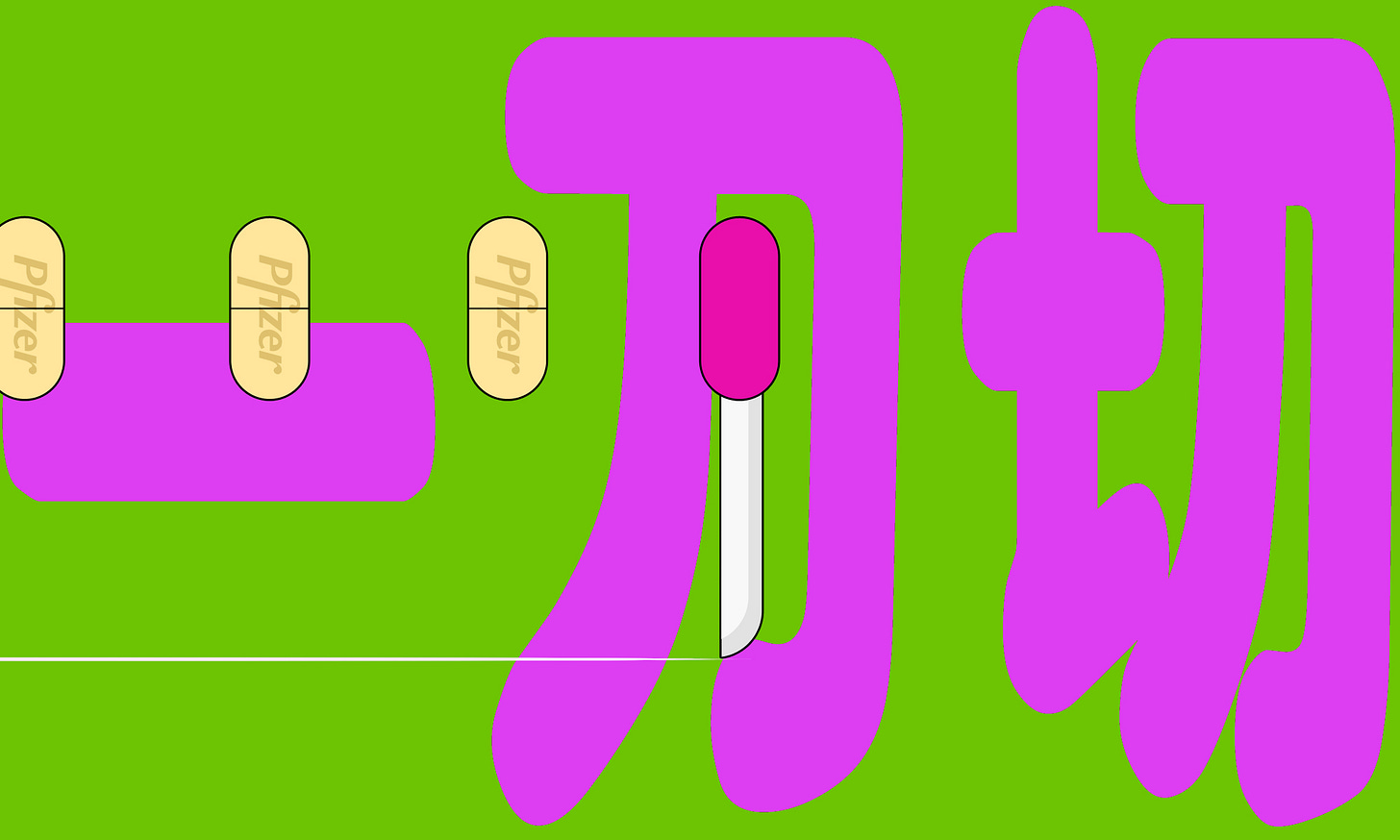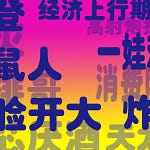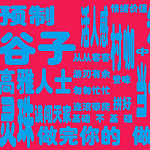Welcome to RealTime Mandarin—a multimedia resource to immerse you in the latest Chinese language trends, inspire you to practice and improve your Mandarin every week, and empower you to communicate with confidence.
Subscribe now to get the next issue straight to your inbox!
Access to branded imported medicines for common illnesses has become an increasingly pressing concern for patients across China.
In early September, as schools reopened and respiratory infections surged, media reports revealed that some treatments had "disappeared" (消失了) with public hospitals prescribing only domestically produced, cheaper alternatives to imported branded drugs.
The wave of discussions began in August when a father from Hangzhou expressed his distress online after struggling to find medicine for his child. His six-year-old was suffering from atypical pneumonia, a common ailment among children returning to school, which can escalate quickly if not treated properly.
An imported drug called Zithromax (希舒美 xī shū měi), a branded product by American pharmaceutical company Pfizer, is often considered the gold standard treatment for this condition. While it is available in China, as the father from Hangzhou discovered, it is becoming increasingly difficult to obtain.
At the hospital in Hangzhou, the father was informed that Zithromax was not available, despite it being accessible just six months prior when his other child had been treated with it.
According to the doctor, only the generic version of the drug, Azithromycin (阿奇霉素 ā qí méi sù), produced in China, could be offered.
Generic drugs (仿制药) are essentially copies of branded drugs (原研药) that are no longer patent-protected. They are sold at much lower prices but are required by regulatory agencies to meet the same safety, effectiveness, and quality standards as the original drugs.
Dive into the Member Podcast, where we go deeper into these and other essential Chinese phrases, helping you discuss this topic with confidence!
While generics like Azithromycin may have different inactive ingredients, their therapeutic effects are expected to be equivalent to those of the originals.
However, this is not always the case, with some patients experiencing poorer outcomes, more side effects or issues such as drug resistance (耐药性), as the father in Hangzhou was about to find out.
After two days of treatment with the generic Azithromycin, his child's condition continued to deteriorate, marked by a worsening high fever. A friend then suggested they go to the Zhejiang Provincial Children's Hospital, the top children's hospital in the province.
After hospitalisation and treatment, the child's fever finally subsided.
This story sparked an outpouring of sympathy on social media, with many recounting similar challenges in accessing original drugs. Since then, several high-profile cases have emerged, including a man in Inner Mongolia who had to drive his daughter 700km to a hospital to get the branded version of the drug, Zithromax.
The growing scarcity of Zithromax and other imported branded medicines is tied to a national drug procurement policy implemented in 2018, designed to reduce medicine prices for patients.
Most listed drugs (中选), which are subsidised out of the national health insurance budget, are domestic generics, which are much cheaper than their branded imported equivalents.
Based on this policy, local medical insurance bureaus, which manage drug procurement for hospitals, have established rules regarding the quantity and proportion of listed drugs used in public hospitals.
This has gradually led to domestic drugs replacing imported ones.
Some reports say that the initial goal of centralised procurement wasn't to "push out" (挤走) original drugs, with local medical insurance bureaus telling hospitals they still needed to buy a certain amount of non-listed drugs, like Pfizer’s Zithromax.
However, many doctors choose the simpler option of just prescribing cheaper generics. As one expert explains:
“It’s not that original drugs aren’t prescribed at all anymore, but their use has become much more cautious.
In the past, prescribing this kind of drug for a condition like this was very common, but now it’s no longer allowed. As for what constitutes 'absolutely necessary', that’s hard to define.”
“不是原研药完全不给开,而是在使用上要比以前谨慎得多,以前这个情况开这种药很正常,现在就不行,什么程度是‘不得不用’,这就不好说了”。 [1]
The cost of medicines is a key concern for hospitals, as imported drugs can be significantly more expensive than generic alternatives.
This financial strain is compounded by pressures on China's health insurance budget, which is facing deficits in some regions, mirroring similar challenges in 11 of China’s 31 provinces with pension budget deficits, as we discussed last week.
In September 2023, the national health insurance budget for 960 million insured residents was set at 1.6 trillion yuan, while expenditures reached 1.5 trillion yuan, leaving a surplus of just 1%.
According to the rules outlined in the most recent policy, the "National Drug Centralised Procurement Document" published in October 2023, the top nine bids with the lowest prices are selected and included in the national procurement list.
During the bidding process, Zithromax was priced at 5.58 yuan per pack, which was about 4.7 times higher than the bid of 0.98 yuan per pack for the ninth-place generic alternative on the list.
As a result, Zithromax was excluded from the list (落选).
This trend is reflected across the board, with government data indicating that 95% of medicines in the national procurement list are now generics.
In practice, many hospitals have opted to "use less or even stop purchasing" certain drugs that were not selected in the procurement process, so as to meet the "hard targets" of public procurement.
Some even use cost control as a metric for performance evaluation and promotion.
现实中,不少医院针对一些集采未中选药物,选择“少使用甚至不采购”,一刀切式地完成集采“硬指标”,甚至将控费与评优、绩效、奖惩机制绑定。
Experts and patients are calling for reforms in the procurement system.
These reforms should offer more choices, allowing products included in the public procurement list to be paid for according to their procurement prices.
Whereas for high-priced original products that are not listed, patients who wish to choose them could bear a certain portion of the out-of-pocket expenses, as one blogger suggests in an article which has now been deleted:
Ultimately, what the general public cares about most is not whether the drugs are imported or domestically produced, but their efficacy.
In cases where domestic drugs exhibit quality defects, hastily excluding high-priced imported drugs indeed reflects a lack of responsibility for the health and lives of the people.
Ideally, patients should be given a choice between the 5.58 yuan branded drug and the 0.98 yuan generic version.
老百姓最关心的不是进口与国产,而是疗效。在国产药存在质量缺陷的情况下,急吼吼将高价进口药排除在外,确实是一种对他人生命健康不负责的表现。或者,具体到阿奇霉素而言,比较稳妥的做法,是将5.58/袋的进口药与0.98元/袋的国产药一并列上,给人们一个选择权。[3]
So, will Chinese patients get more choice?
That's what we're exploring this week!
🎧 Podcast Preview: This week in the RTM+ Member Podcast, we delve into the nuanced (and sometimes confusing!) language surrounding medicines, their procurement, and usage in China. Plus, we’ll recommend the thought-provoking film “Dying to Survive” (我不是药神). Tune in at 10 minutes and 10 seconds to enhance your language skills and deepen your understanding of this critical topic!
Favourite Five
1. 撤网 chè wǎng
withdrawal from the market, to delist from the national drug procurement list
原研药在国内大面积撤网 - Branded drugs have been widely withdrawn from the domestic market. [2]
Related:
挂网 guà wǎng - to list, to put on the market
下架 xià jià - to take off the market
2. 落选 luò xuǎn
to be eliminated, to not be selected
2021年6月第五批国家集采中,希舒美注射液同样落选 - Zithromax injection was once again not selected in the fifth round of public procurement in June 2021. [2]
Related:
中选 zhòng xuǎn - to be selected, to win the bid
集采 jí cǎi - bulk procurement, centralised purchasing
3. 一刀切 yì dāo qiē
one-size-fits-all
一刀切式地完成集采“硬指标”,甚至将控费与评优、绩效、奖惩机制绑定 - They meet the "hard targets" of public procurement in a one-size-fits-all manner and even use cost control as a metric for performance evaluation and promotion. [2]
More: Read more about this phrase in Sinica Phrase of the Week tomorrow.
4. 多一事不如少一事 duō yí shì bù rú shǎo yí shì
it's better to do less than to do more
很多时候医生也会多一事不如少一事 - Many times, doctors also feel it's better to do less than to do more. [1]
5. 费了九牛二虎之力 fèi le jiǔ niú èr hǔ zhī lì
exerting the power of nine cows and two tigers; to exert tremendous effort
费了九牛二虎之力终于搞到了这种药 - It took him tremendous effort to finally secure this medication. [3]
More: This reminds me of a phrase we discussed earlier this year, “nine cows and one strand of cow hair” (九牛一毛) meaning “a drop in the ocean”
Consuming the Conversation
Useful words
6. 高昂 gāo áng
high cost, exorbitant
因其研发成本高昂,定价通常远高于《药品政府定价办法》规定的标准 - Due to its exorbitant R&D costs, it is usually priced far above the threshold set by the "Government Pricing Guidelines for Drugs". [1]
Related:
低廉 dī lián - low-priced, inexpensive
7. 痊愈 quán yù
to recover, to heal
用了进口的注射用阿奇霉素,很快就痊愈了 - He recovered quickly after being treated with the imported azithromycin injection. [3]
8. 戕害 qiāng hài
to harm, to damage
这不仅是逻辑和医学上的错误,而且是对炎黄子孙的戕害和犯罪 - This is not only logically flawed and against the principles of medicine, but also a crime that harms the Chinese people. [3]
Note: 炎黃子孫 yán huáng zǐ sūn means the "descendants of the Yan and Yellow Emperors", in other words, the Chinese people.
9. 滞销 zhì xiāo
to sell poorly, to be unsold
一些日常用量不大的原研药,如果患者不选择,可能有滞销或过期的风险 - Original drugs that are not commonly used may risk poor sales or expiration, if patients do not opt for them. [1]
10. 掣肘 chè zhǒu
to hinder, to restrict
阿奇霉素的耐药性问题,可能是更加掣肘治疗效果的根源 - The issue of drug resistance may be the root cause that further reduces the efficacy of azithromycin. [2]
Three-character phrases
11. 仿制药 fǎng zhì yào
generic drug
大众习惯用进口与国产来做区分,更准确的说法应当是原研药与仿制药 - The public usually call them imported or domestic drugs, but the more accurate terms should be original drugs and generic drugs. [1]
Related:
过评 guò píng - to pass evaluation, to be approved
原研药 yuán yán yào - original drug, brand-name drug
耐药性 nài yào xìng - drug resistance
副作用 fù zuò yòng - side effect
专利悬崖 zhuān lì xuán yá - patent cliff
12. 硬指标 yìng zhǐ biāo
hard target, rigid requirement















